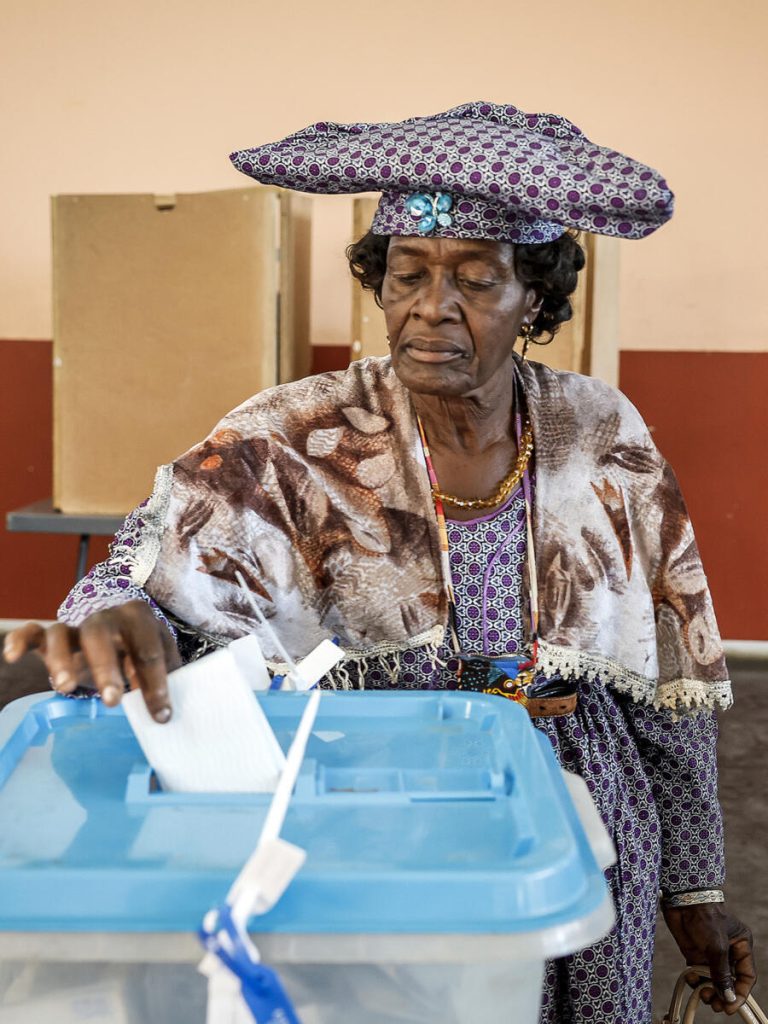Namibia appears to be on the brink of electing its first female president, as early Tuesday saw the governing party candidate secure a commanding lead with two-thirds of the votes from last week’s election tallied. However, the opposition has already dismissed the election as fraudulent.
Netumbo Nandi-Ndaitwah, the Vice President and candidate from the SWAPO party—who has steered the country since its independence 34 years ago—has garnered just over 54% of the votes, based on the electoral commission’s tally of nearly 66% of ballots counted.
Meanwhile, the leader of the main opposition party, Independent Patriots for Change (IPC), Panduleni Itula, lags far behind with just over 28% of the vote.

The election, which took place on November 27, was marred by repeated delays, including technical and logistical challenges such as a shortage of ballot papers. Long queues, with some voters waiting up to 12 hours, led many to abandon the voting process on the first day.
At 72, Nandi-Ndaitwah could be forced into a runoff if she fails to secure over 50% of the votes once all results are in. If she prevails, she will make history as the first woman to lead this vast, arid country of roughly three million people.
Despite her lead, Itula, 67, has openly criticized the election, citing numerous “irregularities.” He vowed that, regardless of the final outcome, the IPC would not recognize the results. “The rule of law has been grossly violated, and we cannot, under any circumstances, call these elections free, fair, or legitimate,” he declared on the last day of the extended voting period.
As of early Tuesday, the electoral commission had released results for 79 of 121 constituencies, including all but two in the capital city, Windhoek. Out of nearly 1.5 million registered voters, a significant 73 percent had participated in the vote.
SWAPO, the South West Africa People’s Organisation, has been in power since Namibia gained independence from apartheid-era South Africa in 1990. Yet, despite this long-standing leadership, many younger voters are disillusioned by high youth unemployment and persistent inequalities.


